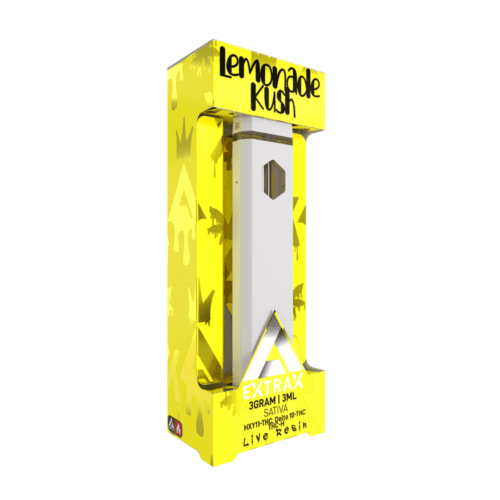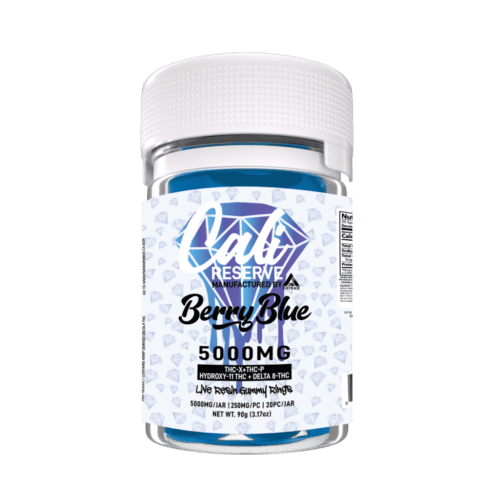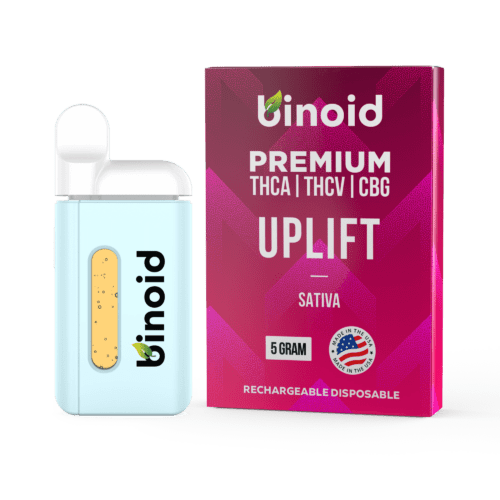Delta-11 tetrahydrocannabinol (delta 11 THC) is yet another naturally occurring, extremely trace cannabinoid found in hemp, which new technology has allowed us to isolate and explore to see what it can offer us. And, while delta 11 is still quite new, already it’s showing a lot of promise in our industry. Now, let’s see how it stacks up against another more established cannabinoid in our industry – THCV.
TO BUY DELTA 11 THC PRODUCTS CLICK HERE
Why Choose Delta 11 THC?
Delta 11 THC Origin
Delta 11 is a natural cannabinoid in hemp that was first discovered in the 1970s. There’s very little information about it out there outside of the fact that it’s intoxicating, and it’s a homologue of delta 9 THC.
Delta 11 THC’s Psychoactive Properties
What we know is that one study suggested delta 11 being about 3x as intoxicating as delta 9 THC. As for what the high feels like, we’re still waiting on more information.
Delta 11 THC’s Non-Psychoactive Properties
No studies have offered insight the potential therapeutic properties of delta 11 THC, but because it is a cannabinoid that naturally exists in hemp, we know that it works with the body’s endocannabinoid system in various ways to help regulate critical bodily processes.
Purpose for Taking Delta 11 THC
Delta 11 THC is a cannabinoid used for recreational purposes as of now, since we don’t know what kind of therapeutic uses it could offer.
Delta 11 THC’s Legality
Even though delta 11 THC complies with the 2018 Farm Bill on a federal level, it’s likely prohibited on a state level in these states due to its intoxicating nature:
- Alaska
- Arizona
- Arkansas
- Colorado
- Delaware
- Idaho
- Iowa
- Mississippi
- Montana
- Nevada
- New York
- North Dakota
- Rhode Island
- Vermont
- Utah
- Washington
Why Choose THCV?
THCV Origin
THCV was discovered way back in 1973, as a naturally occurring cannabinoid found in hemp in extremely trace levels. THCV makes up about 0.1% of the hemp plant, and is a homologue of delta 9 THC, meaning that molecularly, the two cannabinoids are very similar, despite actually having very different effects and properties.
THCV’s Psychoactive Properties
THCV is the mildest psychoactive cannabinoid, and its high can only be achieved through fairly high doses since below a certain threshold, the cannabinoid is actually non-intoxicating as a CB1 antagonist. The high lasts for about half the duration of delta 9 THC, for reference, and seems to offer a very mild, mood-boosting buzz.
THCV’s Non-Psychoactive Properties
Unlike delta 11 THC in this specific case, THCV has been researched considerably for its valuable effects, including:
- Neurological Regulation: THCV could supply anti-seizure activity through a combination of anticonvulsant and neuroprotective properties, meaning that those with epilepsy may find it very useful.
- Effects Related to Blood Sugar and Obesity: THCV is most lauded for its ability to regulate blood sugar and insulin levels, which is something that makes it really stand out among other cannabinoids. It also seems to offer effects that may reduce obesity, by regulating the storage of fat in the body and reducing appetite.
- Anti-Inflammatory Properties: THCV might provide those potent anti-inflammatory properties, which’s something that we see with many cannabinoids in the hemp plant.
Purpose for Taking THCV
A lot of people like to explore THCV for its high, but as you can see, it seems to be a particularly useful cannabinoid for specific conditions and symptoms related to blood sugar, body weight, neurological function and more.
-
Product on sale
 Super 7 Tincture – 7000mg$39.99
Super 7 Tincture – 7000mg$39.99$59.99
THCV’s Legality
Like delta 11 THC, THCV is protected under the 2018 Farm Bill, thus allowing it to be legalized under federal law. Again, however, these states below likely prohibit sales of THCV products:
- Alaska
- Arizona
- Arkansas
- Colorado
- Delaware
- Idaho
- Iowa
- Mississippi
- Montana
- Nevada
- New York
- North Dakota
- Rhode Island
- Vermont
- Utah
- Washington
Final Decision: Delta 11 THC or THCV – Which Cannabinoid Will You Choose?
Both delta 11 THC and THCV are psychoactive derivatives of the hemp plant, but as you can see, they have way more differences than similarities. In fact, you can find a place in your routine for each one, and the good news is that when it comes to cannabinoids, we can explore all of them freely as we so choose, either together or at different times of the day or week. So, give both of these derivatives a chance, and find what each one can do for your daily hemp-related goals and desires.
Check out Binoid’s amazing selection of Delta 11 THC and THCV products today!







